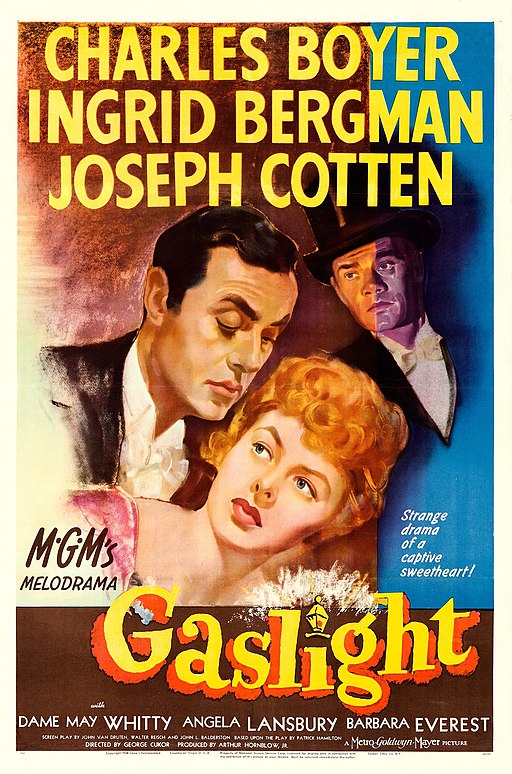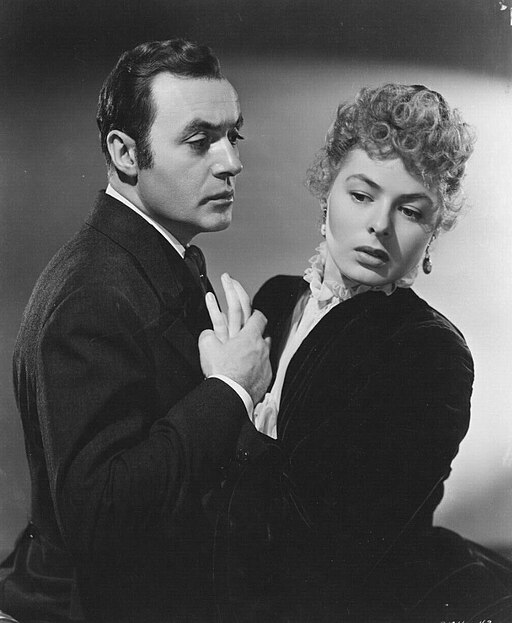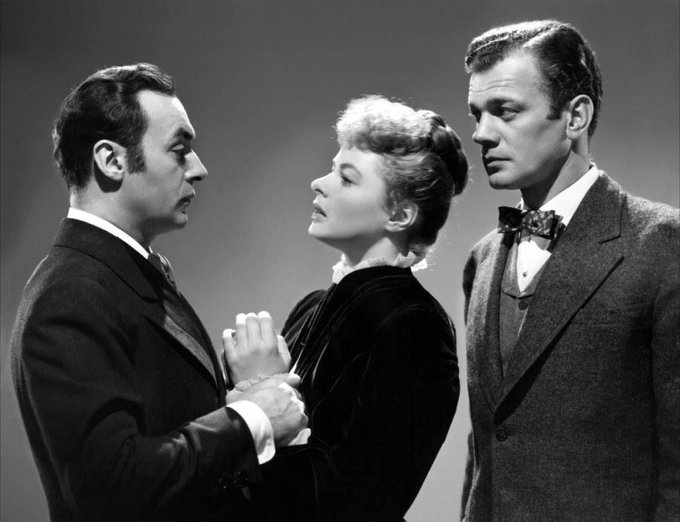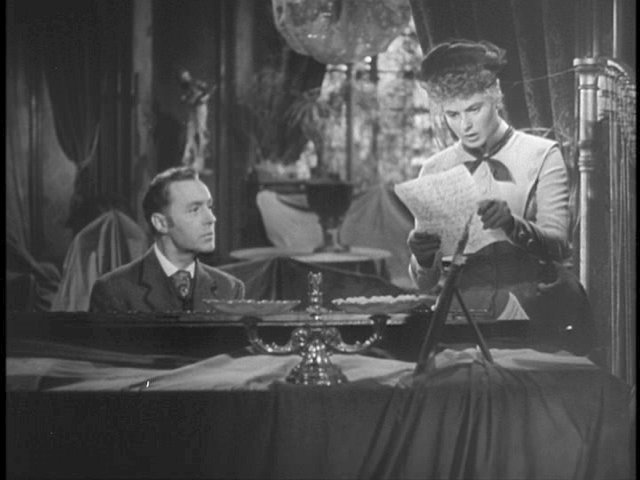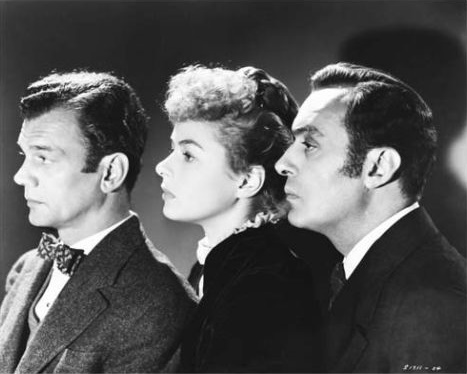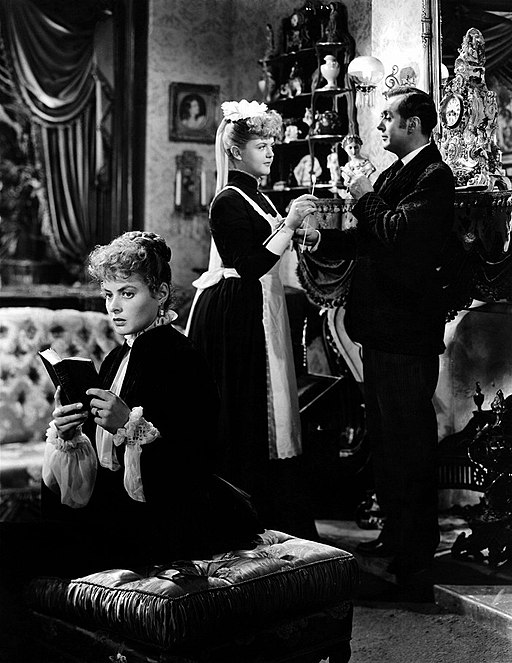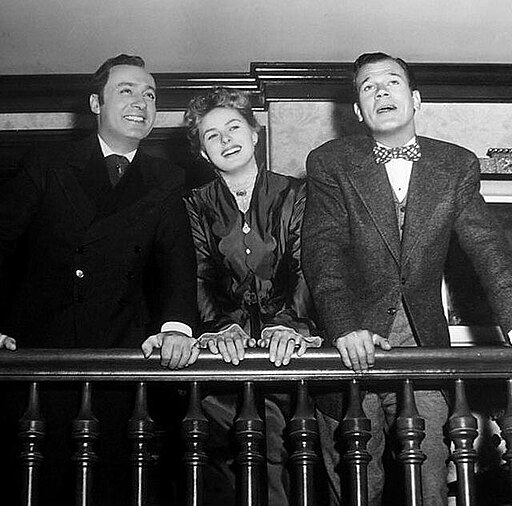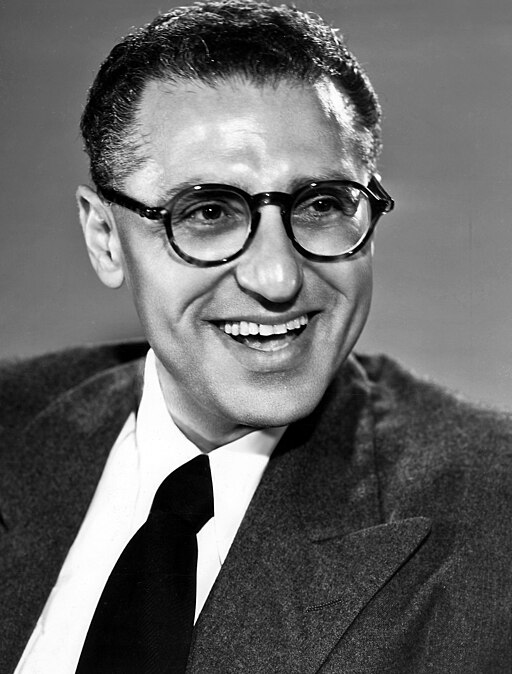Gaslight - 1944
back| Released by | Metro-Goldwyn-Mayer |
| Director | George Cukor |
| Producer | Arthur Hornblow Jr. |
| Script | John Van Druten, Walter Reisch, and John L. Balderston, based on the 1938 play Gas Light by Patrick Hamilton |
| Cinematography | Joseph Ruttenberg |
| Music by | Bronisław Kaper |
| Running time | 114 minutes |
| Film budget | $ 2 million |
| Box office sales | $ 4,6 million |
| Main cast | Ingrid Bergman - Charles Boyer - Joseph Cotten - Angela Lansbury |
Gaslight
A haunting tale of manipulation against psychological torment
Gaslight is a psychological thriller that tells the story of Paula Alquist (Ingrid Bergman) who moves into her aunt's London home with her husband, Gregory Anton (Charles Boyer). Paula is unaware that Gregory is secretly trying to drive her insane to cover up a dark secret.
The term "gaslighting," widely used today to describe psychological manipulation aimed at making a victim doubt their own memory and perception, originated from the play and this film adaptation. Bergman's performance earned her an Academy Award for Best Actress.
Related
Gaslight – 1944
Summary and Analysis
Summary:
"Gaslight" is set in Victorian London and begins with the tragic murder of famous opera singer Alice Alquist, leaving her niece, Paula (Ingrid Bergman), an orphan. After years of living abroad to escape the trauma of her aunt's death, Paula returns to her aunt's London home as a young woman. She is accompanied by her new husband, Gregory Anton (Charles Boyer), whom she met and fell in love with in Italy.
The house, left untouched since the murder, becomes the setting for a sinister transformation. Gregory, who is actually a jewel thief and the murderer of Paula's aunt, begins an elaborate and cruel campaign to convince Paula she is losing her mind. He isolates her from the outside world, hides household items, and manipulates the gaslight to flicker, all while claiming she is forgetful and delusional when she notices these strange occurrences.
Inspector Brian Cameron (Joseph Cotten), who admired Alice Alquist and has suspicions about Paula's well-being, begins his own investigation. As Paula becomes more isolated and fearful, doubting her sanity, Cameron's investigation draws him closer to the truth.
Gregory's motive is to find valuable jewels hidden in the house, which he believes Paula could unknowingly reveal. His manipulation intensifies until Paula is on the brink of a breakdown. However, with the help of Inspector Cameron and a critical moment where Paula discovers a letter that exposes Gregory's true identity and motives, she confronts her husband. The film climaxes with Gregory's arrest, and Paula's sanity and independence are restored.
Analysis:
"Gaslight" is a masterful exploration of psychological manipulation, with George Cukor skillfully directing the suspenseful narrative to emphasize themes of trust, power, and the search for truth. The film's title has entered the lexicon as a term for psychological abuse that causes a person to doubt their reality, showcasing its lasting impact on popular culture.
Ingrid Bergman's portrayal of Paula is a highlight, as she captures the emotional turmoil of a woman whose reality is systematically dismantled by someone she loves and trusts. Charles Boyer's performance as Gregory is equally compelling, embodying the charm and menace of a manipulative villain.
The cinematography by Joseph Ruttenberg enhances the film's eerie atmosphere, using lighting and shadow to reflect Paula's psychological state and the suspense of the narrative. The Victorian setting, with its opulent yet oppressive interiors, mirrors the confinement and isolation Paula feels.
Music by Bronisław Kaper further accentuates the film's suspenseful and emotional moments, weaving a critical layer to the storytelling that enhances the psychological depth and tension.
"Gaslight" not only stands as a classic thriller but also serves as a poignant commentary on the effects of psychological abuse. It underscores the importance of trust and the dangers of manipulation, themes that remain relevant today. The film's legacy is evident in its contribution to film language and its influence on both the thriller genre and discussions around mental health and manipulation.
Classic Trailer of Gaslight:
Full Cast:
- Ingrid Bergman as Paula Alquist Anton
- Charles Boyer as Gregory Anton
- Joseph Cotten as Brian Cameron
- Dame May Whitty as Miss Thwaites
- Angela Lansbury in her film debut as Nancy Oliver, the maid
- Terry Moore as Paula Alquist as a Child
- Edmund Breon as Mr. Mufflin
- Halliwell Hobbes as Mr. Purdy
- Tom Stevenson as Williams
- Heather Thatcher as Lady Dalroy
- Lawrence Grossmith as Lord Dalroy
- Barbara Everest as Elizabeth Tompkins
- Emil Rameau as Maestro Guardi
- Jakob Gimpel as Pianist (uncredited)
Analysis of the Direction of George Cukor:
George Cukor's direction in Gaslight (1944) is a masterful display of his ability to craft psychological depth and tension through meticulous attention to detail, nuanced performances, and atmospheric storytelling. Cukor, known for his adeptness in handling character-driven stories and his sensitivity towards actors, leverages these strengths to create a film that is both emotionally gripping and visually compelling.
Character Development and Performance: One of Cukor's most notable achievements in Gaslight is his direction of the cast, particularly Ingrid Bergman and Charles Boyer. He skillfully guides Bergman through a range of emotions that vividly depict her character's descent into doubt and despair, a performance that earned her an Academy Award for Best Actress. Boyer's portrayal of the manipulative and controlling Gregory Anton is equally compelling, providing a chilling counterpart to Bergman's vulnerability. Cukor's ability to elicit such powerful performances speaks to his reputation as an "actor's director."
Atmospheric Tension: Cukor expertly uses lighting, set design, and cinematography to build suspense and enhance the film's psychological tension. The fluctuating gaslight, which serves as a key plot device, is also used to dramatic effect, visually representing Paula's growing uncertainty and Gregory's control over her reality. The dimly lit, claustrophobic interiors of the house contribute to the oppressive atmosphere that mirrors Paula's mental state.
Pacing and Suspense: Cukor's direction ensures that the pacing of the film carefully balances the development of psychological tension with the unraveling of the mystery. He manages to maintain suspense throughout, leading the audience through a series of emotional highs and lows that mirror Paula's own experiences. The director's ability to keep the audience engaged and guessing is a testament to his skillful storytelling.
Visual Storytelling: Cukor's use of visual elements to complement the narrative is another hallmark of his direction in Gaslight. Close-ups are used effectively to convey the characters' emotional states, particularly Paula's growing fear and confusion. The intricate details of the set design also play a crucial role in establishing the film's period setting and the characters' social standing, further immersing the audience in the story.
Thematic Depth: Under Cukor's direction, Gaslight explores themes of manipulation, identity, and the struggle for autonomy. The film's portrayal of psychological manipulation, now referred to as "gaslighting," has had a lasting impact on both cinema and popular culture. Cukor's nuanced approach ensures that these themes are presented in a way that resonates with audiences, prompting them to consider the implications of manipulation and control in relationships.
Stellar Performance of Ingrid Bergman:
Ingrid Bergman's performance in "Gaslight" (1944) is often cited as one of the defining roles of her career, showcasing her immense talent and versatility as an actress. As Paula Alquist, Bergman embodies the transformation of a radiant, confident young woman into a fragile, terror-stricken victim of psychological manipulation. Her portrayal is both nuanced and deeply emotional, capturing the essence of a person whose reality is systematically dismantled by her manipulative husband, Gregory Anton, played by Charles Boyer.
Bergman's ability to convey a wide range of emotions convincingly is at the heart of her performance. Initially, Paula is seen as a hopeful bride, deeply in love and excited about her future. Bergman infuses these early scenes with a brightness and warmth that make her subsequent descent into despair all the more jarring. As the story progresses and Gregory's manipulation intensifies, Bergman masterfully depicts Paula's growing confusion, fear, and self-doubt. Her eyes, often a focal point of her performances, communicate her character's terror and vulnerability in a profoundly impactful way.
One of Bergman's strengths in this role is her subtle portrayal of Paula's mental torment. She doesn't resort to overacting; instead, she relies on small, controlled expressions and body language to express her character's escalating anxiety and isolation. This restraint adds a layer of authenticity to her performance, making the audience's investment in her character's plight all the more compelling.
Bergman's depiction of Paula's gradual loss of self is both heartbreaking and infuriating, a testament to her skill in eliciting empathy from the audience. When Paula begins to suspect her sanity, Bergman delivers some of the film's most powerful moments. Her portrayal of confusion and desperation is so convincing that it's almost uncomfortable to watch, highlighting the cruelty of gaslighting and its devastating effects on its victims.
Her performance culminates in a dramatic reversal of power, where Paula confronts her husband and asserts her grasp on reality. Bergman handles this transition with remarkable grace and strength, capturing the catharsis of reclaiming one's sanity and self-worth. This final act showcases Bergman's range as she moves from vulnerability to empowerment, solidifying her character's journey as one of cinema's most memorable portrayals of resilience.
Ingrid Bergman's performance in "Gaslight" earned her an Academy Award for Best Actress, a well-deserved recognition for a role that remains a cornerstone of her illustrious career. Her portrayal of Paula Alquist is not only a masterclass in acting but also a powerful statement on the human spirit's capacity to overcome manipulation and abuse.
Film Debut of Angela Lansbury:
Angela Lansbury's performance in "Gaslight" (1944) marked her film debut, and it was a striking introduction to a career that would span decades and encompass a wide range of characters across stage, film, and television. Lansbury played Nancy Oliver, the cheeky and insolent maid to Ingrid Bergman's Paula. Despite her supporting role, Lansbury's portrayal left an indelible mark on the film and showcased her remarkable talent at a young age.
As Nancy, Lansbury injected a palpable tension into the household dynamics, further unsettling the already fragile Paula. Lansbury's portrayal was nuanced; she adeptly balanced Nancy's outward subservience with undercurrents of disdain and impertinence. Her interactions with Paula are laced with a subtle malevolence, contributing significantly to the film's atmosphere of psychological manipulation.
Lansbury's performance was notable for its maturity and complexity, particularly given her youth at the time. She managed to convey a sense of ambition and dissatisfaction with her station in life, traits that aligned her character more closely with Gregory Anton's manipulative machinations than with Paula's victimhood. Nancy's flirtations with Gregory, played with a smoldering intensity by Charles Boyer, are charged with ambition and a desire to rise above her current status, showcasing Lansbury's ability to imbue her character with depth and motivation beyond the written script.
Her ability to command attention in her scenes, despite sharing the screen with established stars like Bergman and Boyer, spoke to Lansbury's natural screen presence and acting prowess. Her portrayal of Nancy was both unsettling and captivating, contributing to the film's suspenseful ambiance. Lansbury's interactions with the other characters were laced with a cunning that belied her character's youthful appearance, making her a compelling and unpredictable presence in the narrative.
Angela Lansbury's performance in "Gaslight" earned her an Academy Award nomination for Best Supporting Actress, a remarkable achievement for her debut film role. This early recognition was a harbinger of the versatile and enduring career that Lansbury would go on to have. Her portrayal of Nancy Oliver remains a testament to her skill at creating complex, memorable characters, even in supporting roles. Lansbury's ability to convey subtlety and nuance in her performance contributed significantly to the film's exploration of themes like manipulation, betrayal, and the struggle for power within domestic spaces.
Memorable Quotes from Gaslight:
"Gaslight" (1944) is rich with memorable lines and exchanges that underscore its themes of manipulation, love, and the struggle to discern reality from illusion. Here are some notable quotes from the film:
Gregory Anton to Paula: "You know, Paula, it's a curious thing. Perhaps I shouldn't say it now, but I must tell you that when I was ill in Italy and thought I was going to die, I suddenly felt that if I could live, it was you who could save me."
Paula: "It's true, Gregory. I am going out of my mind."
This line encapsulates Paula's descent into despair and self-doubt, as she voices the fear that she is losing her sanity under Gregory's manipulative care.
Gregory Anton: "I hope you don't really think I could ever hurt you?"
A chilling instance of Gregory's manipulation, as he feigns concern for Paula's well-being while actively contributing to her mental anguish.
Brian Cameron to Paula: "If I were not mad, I could have helped you. Whatever you had done, I could have pitied and protected you. But because I am mad, I hate you. Because I am mad, I have betrayed you. And because I am mad, I am rejoicing in my heart, without a shred of pity, without a shred of regret, watching you go with glory in my heart!"
Cameron's words here reflect the film's intricate play on sanity, truth, and justice, as he reveals his understanding of the situation and his intentions to protect Paula.
Miss Thwaites to Paula: "Men are very fragile creatures, my dear. They can be shattered by the simplest thing - like the way we women go on talking when they're trying to read their newspaper."
A moment of light-heartedness that also subtly comments on gender dynamics and societal expectations of the time.
Gregory Anton: "You're not going to leave this room tonight. You're going to stay here until you understand that you're not to interfere in my affairs."
Gregory's authoritarian stance over Paula highlights the extent of his control and the psychological cage he's constructed around her.
Paula: "I am not mad. I am not mad. I know what I know."
A powerful declaration of Paula's fight to hold onto her sanity and truth, marking a pivotal moment in her realization and resistance against Gregory's gaslighting.
Awards and Recognition:
Academy Awards (Oscars)
- Won Best Actress in a Leading Role: Ingrid Bergman for her portrayal of Paula Alquist Anton. This award underscored Bergman's powerful performance and her ability to convey the emotional depth and turmoil of her character.
- Won Best Art Direction-Interior Decoration, Black-and-White: For Cedric Gibbons, William Ferrari, Paul Huldschinsky, and Edwin B. Willis. This award recognized the film's atmospheric and period-accurate set design, which played a crucial role in establishing the film's suspenseful and claustrophobic environment.
- Nominated for Best Picture: "Gaslight" was nominated for the film industry's highest honor, showcasing its overall excellence and impact as a cinematic work.
- Nominated for Best Actor in a Leading Role: Charles Boyer for his role as Gregory Anton. Boyer's performance as the charming yet sinister husband was critically acclaimed.
- Nominated for Best Actress in a Supporting Role: Angela Lansbury for her role as Nancy Oliver. Despite being her film debut, Lansbury's performance was impactful, earning her a nomination at the young age of 19.
- Nominated for Best Writing, Screenplay: John Van Druten, Walter Reisch, and John L. Balderston were nominated for their adaptation of Patrick Hamilton's play "Gas Light," on which the film was based.
- Nominated for Best Cinematography, Black-and-White: Joseph Ruttenberg was recognized for his work on the film, which enhanced its mood and suspense through lighting and composition.
Other Awards and Nominations
While the Oscars were the primary awards ceremony where "Gaslight" received recognition, its success at the Academy Awards highlighted the film's quality and impact. The movie is often cited in discussions of classic cinema and has been recognized in various retrospectives and film lists for its contributions to the thriller genre and its exploration of psychological manipulation.
"Gaslight" remains a landmark film not only for its awards and nominations but also for its enduring legacy in film history, particularly in how it introduced the term "gaslighting" into the broader cultural lexicon to describe a specific form of psychological abuse.
The Psychological Impact of the Movie:
The impact of the movie "Gaslight" (1944) on the term "gaslighting" is profound, as it has directly contributed to the contemporary understanding and use of the word in psychological and social discourse. Initially, "gaslighting" was not a term used to describe psychological manipulation; it originated from the practices depicted in the film and the 1938 play by Patrick Hamilton that the movie is based on. In these narratives, the husband, Gregory Anton, manipulates small elements of Paula's environment and insists that she is mistaken or misremembering things when she notices these changes. One of the key methods he uses involves dimming the gas lights in their home and then denying that any change in light occurred, leading to her questioning her sanity.
Over time, "gaslighting" has evolved to describe a specific form of psychological abuse where a person or a group covertly sows seeds of doubt in a targeted individual or group, making them question their own memory, perception, or judgment. This can lead to significant psychological impact, including a loss of confidence, self-doubt, and even mental illness.
The film's vivid portrayal of this insidious form of manipulation has made it a reference point for understanding such behavior in real life. The term itself has become a crucial part of psychological, legal, and popular language, often used to describe similar behaviors in relationships, politics, and media where power dynamics are abused to manipulate or control others. "Gaslight" provided a clear, relatable example of this behavior, helping to solidify the concept in the public consciousness and academic study. Its impact is such that "gaslighting" is not just a term but a critical concept in identifying and understanding a form of emotional and psychological abuse, emphasizing the importance of recognizing and addressing such behaviors in various contexts.

